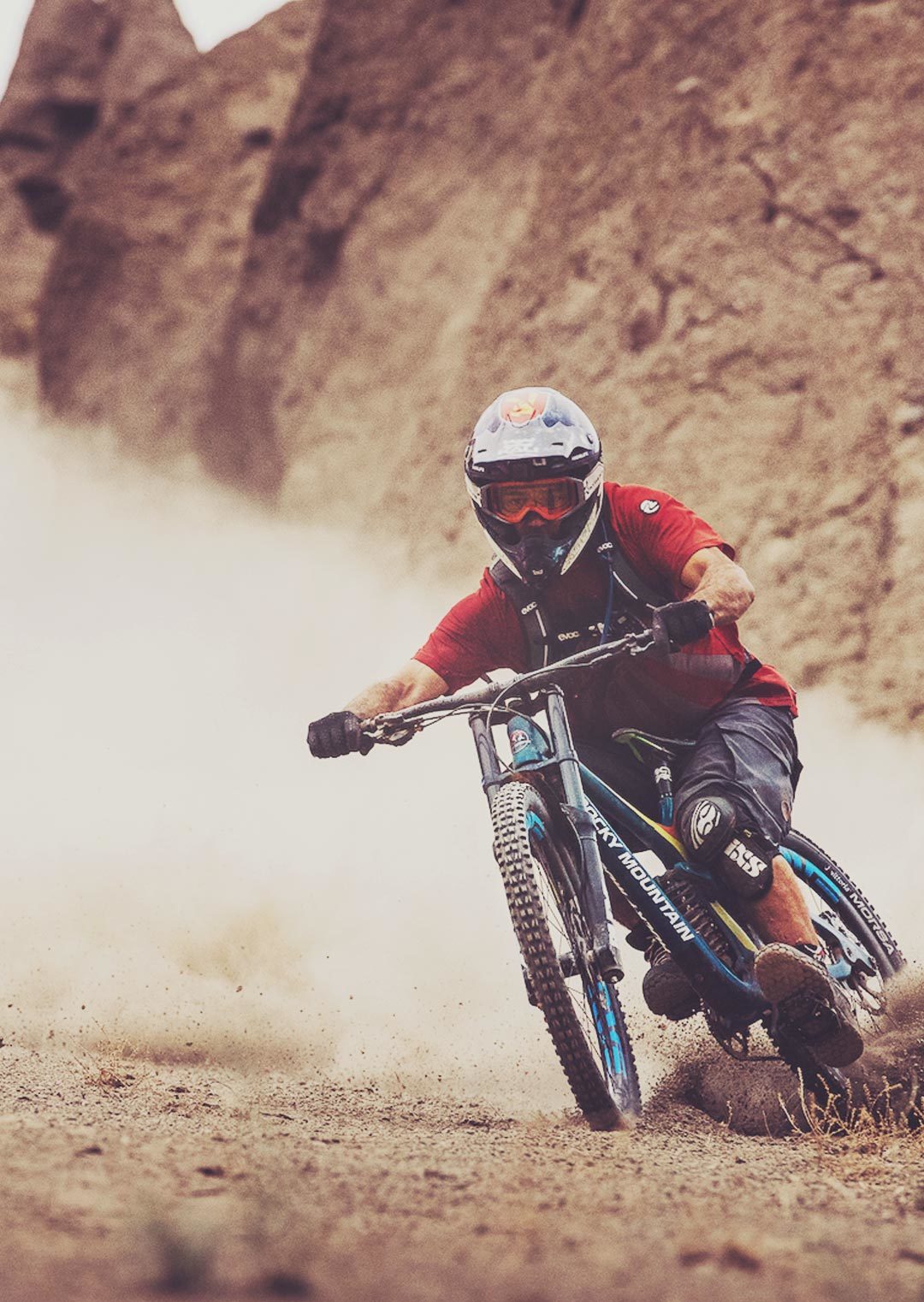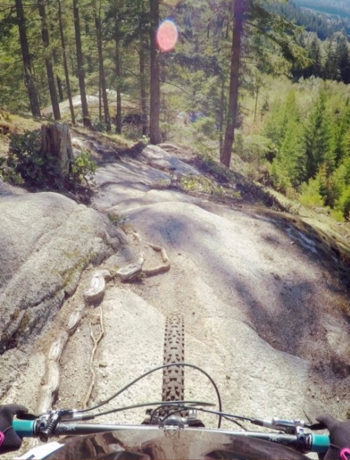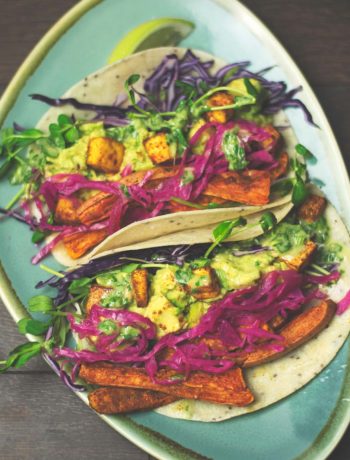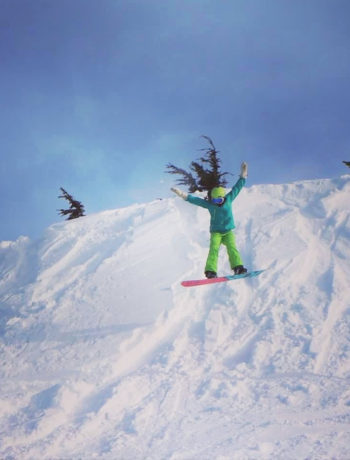Ah fiddlesticks, my knees hurt
Like our bikes, our bodies tend to break down as we age. But wait! I’m here to tell you there’s no reason to swap your mountain bike and Toyota Tacoma for Backgammon and a beige Camry just yet!
Before you throw in the towel and take a nap on the davenport, know that just because you’re 50 years old on paper, doesn’t mean you’re 50 biologically. If you’re eating healthy foods and doing things like riding your bike, there’s less biological aging taking place in your body—honest to Pete!
I think most of us can agree that not being independent or able to do to activities we love in old age is far scarier than death. If you want to roll into your senior years doing the things you love, the good news is we can decelerate aging and increase vitality by being proactive and understanding why we age in the first place. So, before you decide to slip into your pine overcoat, take a moment to learn a few age-reversing tricks.
Peddle don’t shuttle
When you’re old, you need the ability to chase kids off your lawn; therefore maintaining your V02max is important. When you keep active, you maintain a good VO2max (max aerobic capacity) despite decreases in max heart rate. VO2max tends to decline by about 10% per decade after the age of 30, but athletes who continue to train hard can reduce the drop by about half, to 5% per decade after the age of 30.
If you want to keep up to the young bucks, than ensure you’re maintaining the quantity and quality of your training as you get older. Mix it up with intervals and vary your types of exercise. Alternate your usual workouts with some variety and do cross-training activities such as; hiking, cycling, yoga, Pilates, swimming, X-country skiing, paddleboarding etc. Don’t always grind away doing the same thing, it can cause injury and repetitive stress to muscles and joints.
Maintain your Telomeres
What the heck are Telomeres? Turn up your hearing aid! Telomeres are sections of repetitive DNA located at the ends of your chromosomes. Like the plastic tips at the end of your shoelaces, these chromosomal “caps” provide protection that keeps your vital genetic material from deteriorating. Telomeres are like our biological clock and they’re directly correlated with age; each time a cell replicates, we lose a tiny bit of the endcaps. Therefore, the older we get, the shorter our telomeres.
Forget his feet, how big are his Telomeres?
Have you wondered why some sixty-year-olds rip past you on the trail lookin’ like forty-year-olds, and some forty-year-olds can hardy walk a mile lookin’ like sixty-year-olds? Many factors contribute to aging and illness, but the length and health of one’s telomeres are a biological underpinning of ones perceived age.
Telomeres don’t shorten solely due to the passage of time; a study published in the medical journal Preventive Medicine, finds that people who have high levels of physical activity have significantly longer telomeres. Additionally, high-intensity exercise makes a staggering difference in maintaining longer telomeres. Nobel Prize Winner Elizabeth Blackburn, PhD explains in her book The Telomere Effect that you have more control over aging than you think—So put down that wrinkle cream and get on your bike!
Dodge your hereditary disease
If you’re predisposed to a cancer or a particular disease, strong research suggests that shortened telomeres hastens the time when you might activate the disease—my word! By making changes to your daily habits, such as; being active, getting more sleep, eating more plants and consuming less meat, it has been shown that you can protect telomere shortening, increase your vitality and the number of years you’ll remain healthy, active, and disease-free.
Stretch
Beginning in your 30s, your body’s connective tissues—muscles, tendons, and ligaments start to shorten and tighten, losing elasticity. Once your muscles start to get tight, you’re limiting your power and your ability to move smoothly and efficiently.
Flexibility helps athletic performance and the ability to live with ease. Recent studies have shown a correlation between higher mortality rates and lack of torso flexibility—which makes sense if we’re less flexible our body doesn’t work optimally. So, if you want to make velcroing your shoes a cinch when you’re old, start practicing stretching, yoga and pilates now.
Start young
To age well, we must eat well, live well and start young. The point of exercise and a healthy diet isn’t to lose weight, it’s to thrive in each and every moment of your life. You can’t keep the ageing process at bay forever, but if you build a strong foundation early, train smart and stay away from injury, you should be able to hold onto your youth a little longer and your ability to bounce back as you age.
How to cruise downhill with grace
Keep moving
The miracle treatment that turns back the clock is exercise.
Reduce Stress
Psychological stress contributes to numerous diseases and may do so in part through damage to telomeres
Eat a plant-based diet
Your body craves a rainbow of nutrients and studies have suggested that a wide variety of plant food provides the essential nourishment for preserving telomeres.
Eat healthy fats
Ensure you’re getting a healthy dose of omega-3s. It has been proven that high levels of the omega-3s EPA and DHA slow the biological aging process as measured by telomere length. I recommend taking Nutra-veg vegan algae oil
Eat lots of leafy greens
A study recently published in Neurology finds that people who ate a good helping of leafy green vegetables — such as spinach, kale and collard greens each day had a slower rate of cognitive decline. Try one of my green smoothie’s in the morning.
Eliminate unhealthy habits
Alcohol, Tobacco, Drugs, Processed Foods and Refined Sugar are all going to slap-chop your telomeres.
Chase the younger crowd
Research says old people are more likely to thrive if with a younger peer group. Making younger friends will help buoy your biological age.
Keep Learning
A higher level of education is associated with better mental functioning in old age.
Meditate
Researchers at the University of California found that meditators have significantly longer telomere’s than non-meditators.
Get into sport
You’re never too old to learn to ride, and you’re never too old to stop.
Stay Flexible
Flexibility is extremely important as we age as it keeps our muscles healthy for exercise and mobility.
Follow your passions & go after love
Your age is not a handicap and your dreams do not have expiration dates. It is never too early or too late to begin anything.
Care for your body
Ensure you’re getting adequate recovery between training sessions and make conscious decisions to avoid injury.
Go-steady with someone
There is a general trend for longer telomeres among those with fulfilling relationships and who have regular sex.
Cross Train
Diversifying your activities is a great way to keep yourself sharp, and your body uniformly developed and functioning.
Laugh
With laughter, comes smiles and happy memories. Wrinkles are a sign of living life!
Embrace your age
If you’re not aging, you’re dead. Love where you’re at.





No Comments